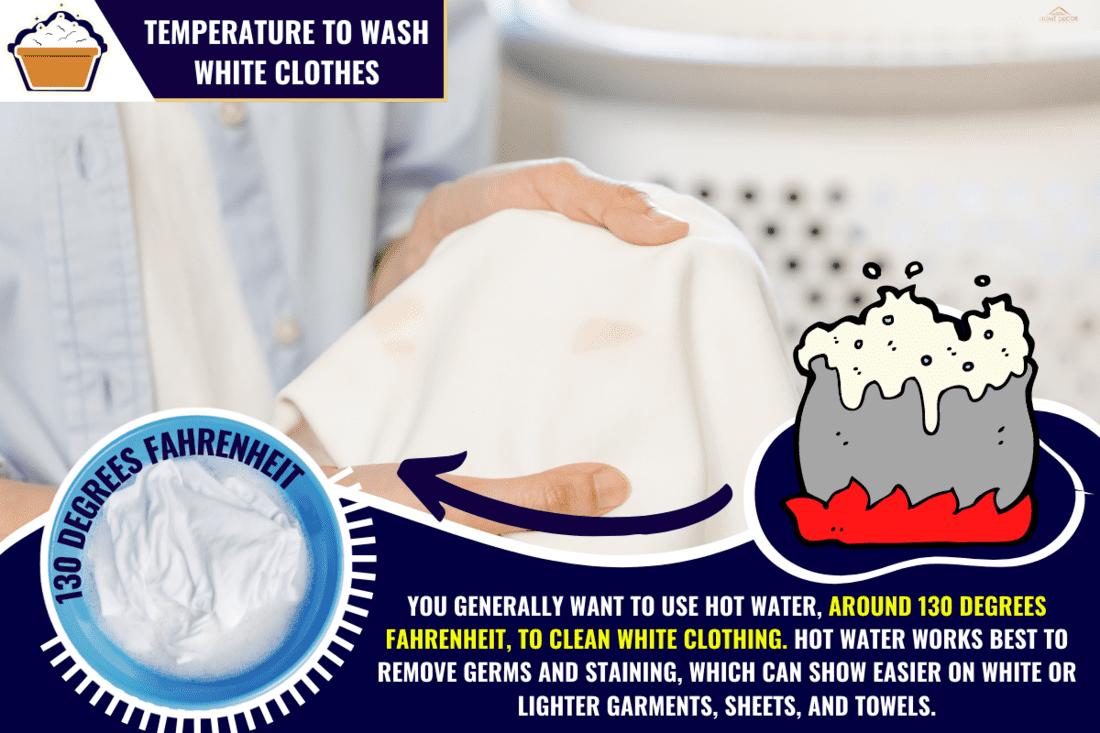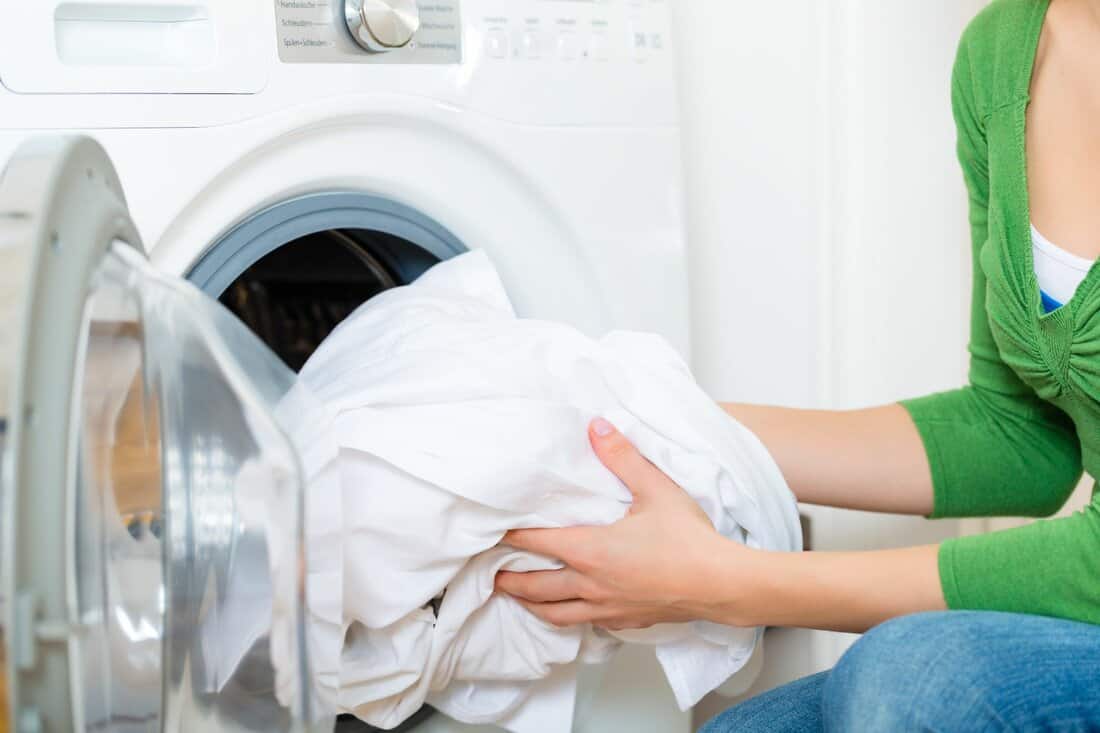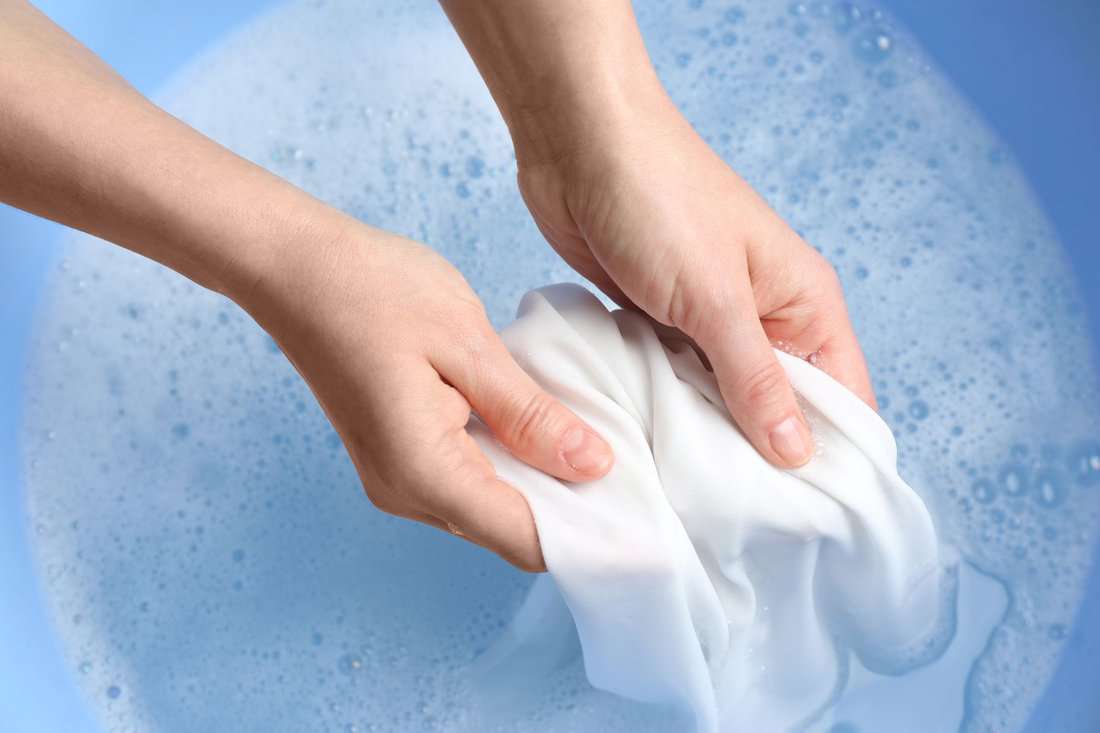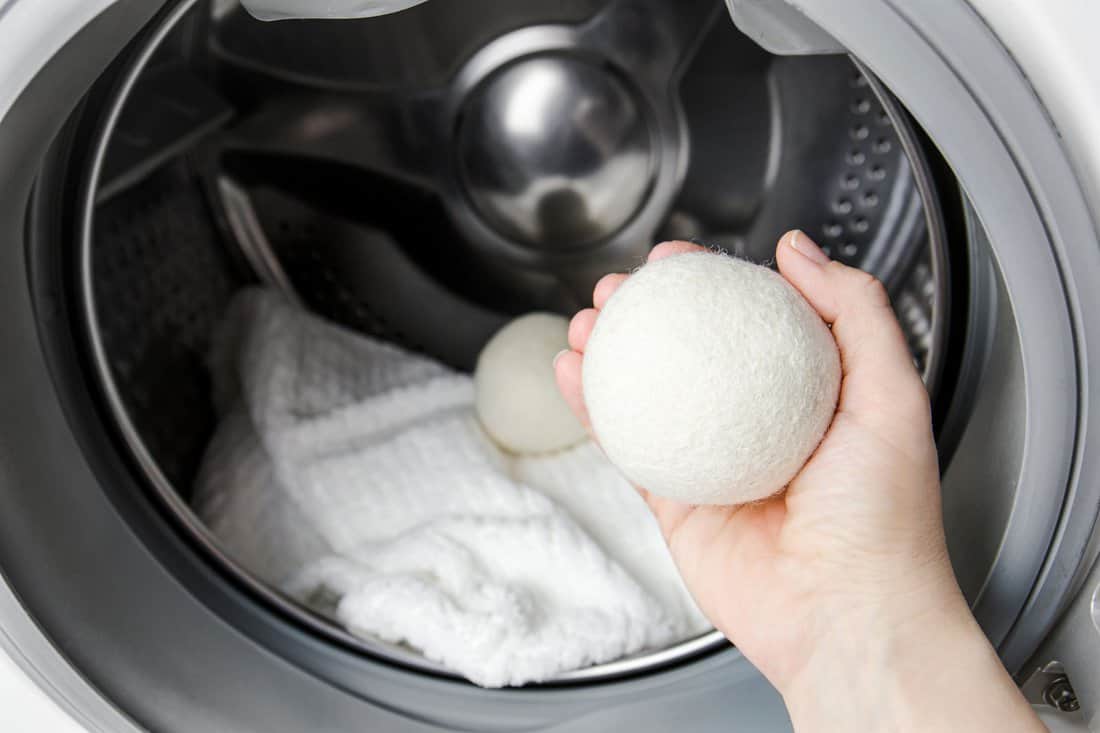Learning new, efficient ways to clean up around your house isn't always as easy as it seems. Do you want to get your white clothes as clean as possible but have no idea what temperature you should wash them in? Does water need to be scolding hot to thoroughly clean white garments?
Luckily, we've extensively researched this question and have the answers below!
You generally want to use hot water, around 130 degrees Fahrenheit, to clean white clothing. Hot water works best to remove germs and staining, which can show easier on white or lighter garments, sheets, and towels.
With that said, super hot water can damage certain fabrics and cause shrinking and fading, so that's a downside to a deeper clean.
As we start this post, we will cover all things washing white clothes and discuss what temperature your laundry machine should be. Whether you're switching appliances, can't seem to get the stains out of your white garments, or have other related questions, we're here to help! Let's dive in!

Do You Wash White Clothes On Hot Or Cold?

We may include affiliate links and curated AI content to highlight top design styles.
Most regular white clothing can handle warm water for washing. As we said, you want to clean white fabrics in hotter water to help remove bacteria and staining, although you don't want to be excessive.
Generally, lighter clothing shouldn't be put into scolding water for prolonged periods, as this can cause damage to them. Specifically, overwashing your white clothes in burning water can lead to fading, shrinking, and even deterioration.
Many experts claim that warm water is most effective for cleaning clothes of all colors, so you want to try and keep the water from being cold.
However, there are antibacterial detergents you can use if you want to cut back on using hot water, but these may not be as effective as plain old hot water and soap.
How Hot Should The Water Be For Cleaning White Clothing?
If you're washing dirty or stained white clothing, you need the water in your machine to be 130 degrees. This higher temperature will effectively kill bacteria and remove dirt/staining.
Again, this doesn't always need to be the case. For example, if your white clothing isn't heavily soiled and doesn't need to be deep cleaned with scolding water, you can certainly wash them in cooler/warm temperatures.
Using a detergent that targets bacteria and stains might even be helpful, so you don't have to depend on the hot water alone. With endless amounts of detergents out there, this can become confusing.
With that said, if your white clothes say 'Delicate' on their care tag, this is when your water shouldn't reach more than 80 degrees.
Even if you think the extra heat will help, this can devastate the fibers in your clothing.
What Laundry Machine Setting Is Best For White Clothes?

Now that you know what temperatures need to be at to clean white garments, it's also essential to know what setting or mode to clean them in. Typically, you want to wash whites in a warm, normal setting or your machine's gentle setting.
As we said, some white clothing is delicate, meaning it can't handle scolding hot water. Additionally, it's not always necessary to use extreme temperatures for everyday cleaning.
Sometimes, some detergent and warm water will get your whites back to their glory! The key here is treating your heavy stains before throwing your white garments into the washer.
By doing this, you take the pressure off your machine and lift your stains before washing. Again, doing the laundry can become intricate with certain fabrics, colors, and staining, so this could take some trial and error.
When in doubt, look at your clothing's care tag and go from there.
How Do You Wash White Clothes, So They Don't Turn Yellow?
For those struggling with yellowing whites, there are ways to keep this from happening. One of the most common issues with cleaning white fabrics is that they eventually turn yellow.
This can happen to anybody. Even if you follow the instructions with your clothing perfectly, it's still possible to see yellowing or color fading over time.
However, there are a few things to do to keep your white clothing in-tact for longer:
- Wash white clothing every TWO wears
- Sort your whites, and don't wash them with other colors
- Use hot water every few washes or with heavy staining
- Don't overload your washing machine
- Use a detergent that doesn't have bleach
- Always measure your detergent
- Add a laundry booster to all-white loads
- Avoid using fabric softeners on white garments
On top of these great ideas, you can also try adding a fabric whitener to all-white loads. Generally, these types of products work well for restoring white fabrics to their original hue, so that's an option to consider.
People make a common mistake when cleaning white fabrics: forgetting to separate them. Although it can feel redundant to only wash white clothing with each other, this will keep them from yellowing or changing color long-term.
For example, if you throw a white blouse in the machine with other color clothing, there's a good chance it will be less white when the cycle is done. That's because white fibers absorb different colors, ultimately yellowing or even turning intense shades like pink or red.
OUT White Brite Laundry Whitener
This laundry whitener works to restore white fabrics, removes yellowing from bleach/wear, removes rust from water impurities, works well for sports uniforms, and comes in a 4.75-pound container.
Follow this link to view it on Amazon.
Is It Better To Hand Wash White Clothes?

For those debating between machine and hand washing, this depends on the garment. Usually, machine washing will be most effective for staining and removing bacteria, although that's not to say you can't ever wash your whites by hand.
According to The Laundress, if you want to wash whites by hand, you need to use warm water, detergent, and a fabric whitener. As we said above, fabric whiteners can effectively keep white fabrics bright and yellow-free, so they're essential for lighter clothing.
If possible, you want to ensure the water your whites are in is hot if they're stained or dirty. Lukewarm water won't likely kill bacteria if you wash by hand, so that's a factor to remember.
Of course, you don't want to run scolding water over your hands, but as hot as you can tolerate will be better for your white clothing, sheets, and towels.
Can The Machine Ruin White Clothing?
Yes. Unfortunately, if your washing machine is dirty inside, there's a chance it will ruin your white clothing. Generally, this happens with a dirty drum, although any parts inside your machine can technically become dirty.
Luckily, there are ways to prevent this from happening.
First, ensure your washing machine's drum is oil, dirt, and dye-free. You can do this by running an empty wash cycle and pouring a cupful of white vinegar or bleach instead of detergent.
Additionally, you can try using an actual laundry machine cleaner, which might be a pellet or pod. Both methods are effective, so this comes down to your preference.
As we wash various items in our machines, they can become dirty. Therefore, throwing in a cleaning pod or pouring some vinegar/bleach inside can be beneficial to prevent clothing damage.
OxiClean Washing Machine Cleaner
This washing machine cleaner has a fast-acting powder formula, eliminates odors, is safe to use on all types of washers, won't harm septic tanks, is phosphate-free, and comes in an 11.28-ounce box.
See this washing machine cleaner on Amazon.
How Do Hotels Clean White Sheets And Towels?
If you've ever been to a fancy hotel, you've likely noticed the sheets and towels are bright white. There's a reason for this: peroxide-based laundry detergents.
Generally, the robes, towels, bedding, and any other washable white fabrics will be heavily treated with these detergents, which is why they always look and smell brand new.
However, misusing peroxide-based detergents can have rippling effects on your clothing and sheets/towels. Usually, harsher products have great results but even worse adverse side effects if you aren't careful.
Therefore, if you want that "hotel" look in your house, follow the directions on your detergent.
In addition, you won't typically need to use such strong detergent on everyday clothing, so these products are more focused on bedding and towels.
Should I Put My White Clothes In The Dryer?

Yes! Although the dryer is often overlooked while cleaning white fabrics, it's essential. According to experts, finishing your white clothing in the dryer can ensure it stays bright, fresh, and white.
That said, overdrying or improper washing and then drying can cause yellowing. So, you don't want to keep your clothing in the dryer on high for hours at a time, but a quick cycle will be helpful.
Furthermore, if you use fabric softeners or too much detergent, the dryer can cause them to "bake" the residue into the fibers of your white garments.
That can lead to lackluster white results and even a bit of discomfort.
To Finish It All Up
Whether you have to clean white clothing all the time or rarely wear the shade, it's essential to care for your fabrics properly. We found that you should wash white clothing at 130 degrees Fahrenheit.
However, you don't want to scold your clothes too frequently, as this can cause damage. Additionally, some white garments have a delicate label on their care tag, meaning they shouldn't be washed in water that's hotter than 80 degrees.
White clothing can be tricky to clean, but with the right detergent and enough care, your pieces should look brand new after each wash!
Made it this far? Check out these helpful related home articles below:
How To Wash And Soften Flannel Sheets To Keep From Pilling





![A laundry room with a washing machine and dryer and a boiler on top, How To Hide A Water Heater In The Laundry Room [9 Ideas To Inspire You!]](https://homedecorbliss.com/wp-content/uploads/2022/11/Laundry-room-with-a-washing-machine-and-dryer-and-a-boiler-on-top-600x400.jpg)